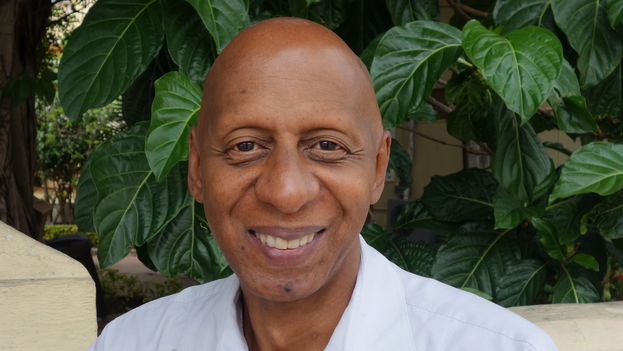
14ymedio, Havana, 20 July 2016 — Guillermo Fariñas, winner of the European Parliament’s Sakharov Prize for Freedom of Thought in 2010, has declared a hunger and thirst strike and as of dawn Wednesday to demand an end to the beatings of non-violent opponents in Cuba and that a dialogue be opened with government.
“It would be cynical of the Cuban government, which was a mediator in the dialog between the Colombian [FARC] guerillas and the authorities of that country, to be unable to sit down and dialog with a non-violent opposition to avoid these beatings and other outrages,” he said in a conversation with 14ymedio.
The opposition figure is asking Cuban president Raul Castro to “publically commit before national and international public opinion to cease these beatings, torture, death threats, the creation of false criminal charges against opponents, searching dissidents’ homes and confiscating the personal belongings of opponents,” and that the government “designate a vice president to meet with 12 prominent leaders of the internal opposition,” responsible for ensuring the end of the violence.
The announcement comes after Fariñas denounced, on Tuesday, a beating by police officers in Santa Clara, and would direct the Fifth Police Station to communicate with the Pinar del Rio Unit where a member of the Anti-Totalitarian Forum (FANTU) – the group Fariñas coordinates – who was arrested last Thursday.
“I offered no resistance, but they still beat me, they threw me into a patrol car, they forcefully handcuffed me, and used a strangulation technique to drag me to the patio behind the Central Fire Station in Villa Clara,” he says. The opponent said that after being transferred to the Provincial Criminal Investigation Unit in Villa Clara, they left him “handcuffed and exposed to the sun” and officials from the Special Brigade continued to beat him. “They told that this was the rigor that they would apply if I went out into the street again, better I dedicate myself to writing, because they would kill me,” he says.
Fariñas also wrote a letter to Raul Castro, in which he says he was “tortured while handcuffed by members of the Special Brigade of the Ministry of the Interior in the province of Santa Clara.” In the missive, he emphasizes that his phenomenon forms a part of the “wave of abuses, terror and violence,” that he has unleashed against “the non-violent opposition, which civilly faces totalitarianism.”
Fariñas has undertaken many hunger strikes. In 2010 he received the European Parliament’s Sakharov Prize for Freedom of Thought after 135 day strike in protest against the death of Orlando Zapata Tamayo and in a demand for better condition for 26 of the 75 prisoners of the 2003 Black Spring, who were suffering serious health problems. Finally, this strike and its media impact were decisive in the beginning of the process of negotiations that ended with the release of the 75 detained since March of 2013.
